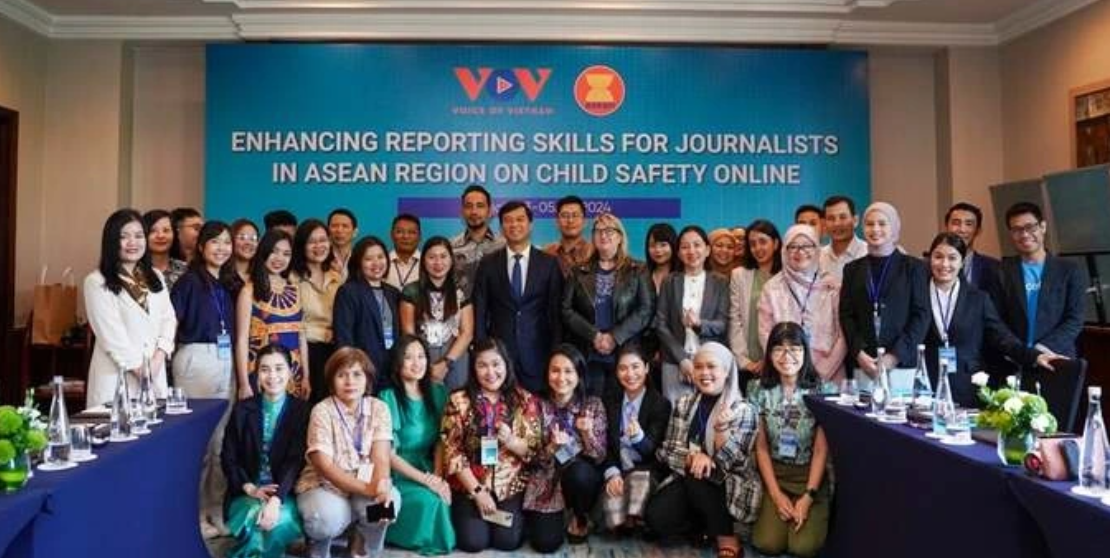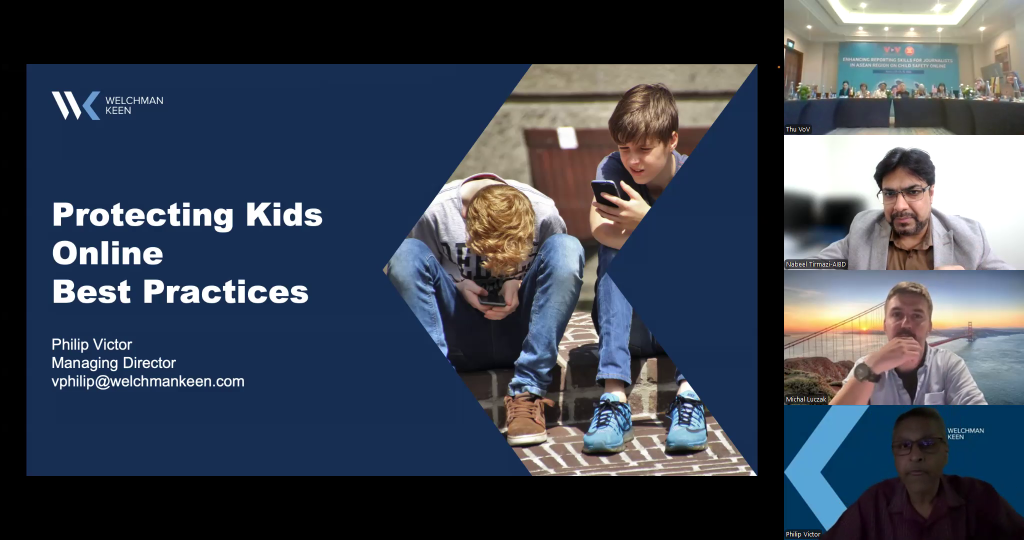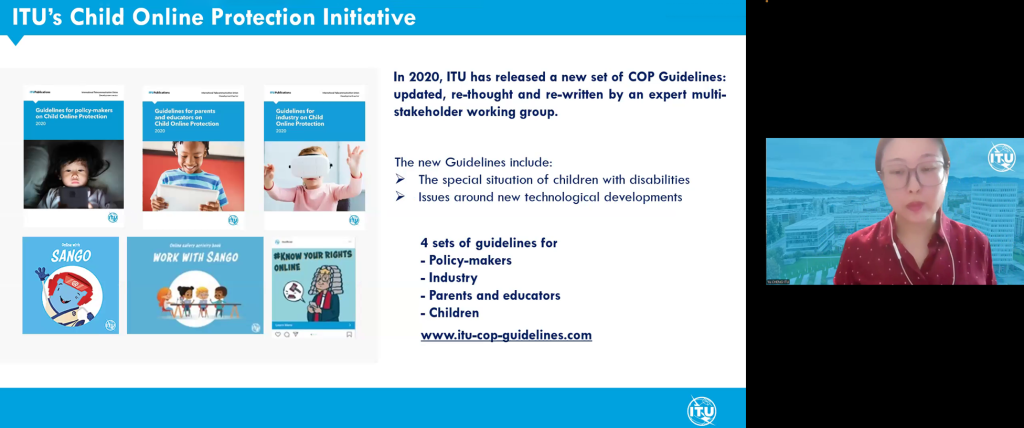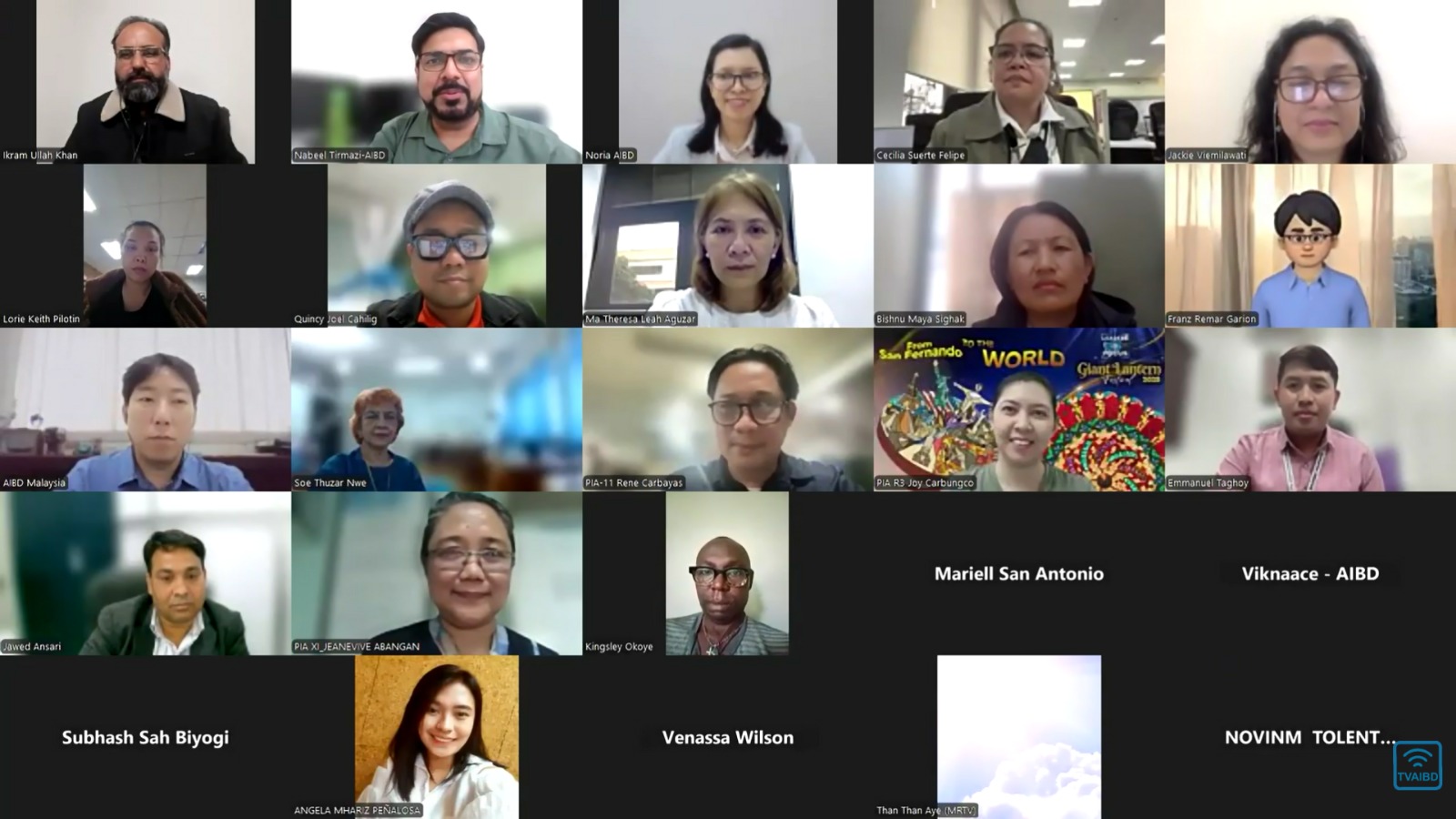
ASEAN Journalists Unite to Safeguard Children in the Digital World
A three-day hybrid training program brought together 30 journalists from ASEAN member states in Hanoi to enhance their reporting on child protection in the digital age. Organized by Vietnam Voice (VOV) with the funding of ASEAN Secretariat and support of AIBD, the initiative aimed to equip journalists with the skills to produce impactful Community Service Announcements (CSAs) and to foster a network of media professionals committed to safeguarding children online.
Speaking at the workshop, Ngo Minh Hien, VOV Vice President, underscored the significance of the program. “As Vietnam’s leading multimedia organization, Voice of Vietnam strives to fulfill its responsibilities in information, entertainment, and education to promote positive social change,” Hien said. He emphasized that while the digital environment offers vast opportunities for children, it also presents serious risks, including online abuse and exploitation.

The training addressed the media’s role in raising public awareness and influencing policy to protect children. Hien highlighted the importance of multi-platform broadcasting in disseminating accurate information and combating the knowledge gaps that leave children, parents, and communities vulnerable to online risks.

Children’s increasing use of the internet has exposed them to threats such as cyberbullying, sextortion, identity theft, and harmful content. Renowned regional Cybersecurity expert from Malaysia, Philip Victor emphasized that the internet, while beneficial, poses unique dangers. “In the past, children interacted face-to-face and enjoyed outdoor activities. Today, their social lives are confined to screens, exposing them to cyber risks,” he said. Philip proposed practical solutions, including teaching digital literacy in schools and creating awareness among children about managing privacy settings and identifying online predators.
Philip also cautioned against fear-based approaches, advocating for empowering children to use the internet positively. Reflecting on his work in Malaysia, he noted that awareness programs focusing on the positive use of the internet have successfully mitigated risks.

Micheal Luczak, another cybersecurity expert, stressed the importance of media advocacy. Public awareness, often fueled by media campaigns, has pushed tech companies and governments to implement stronger privacy and security measures. “If people didn’t care about privacy, the online world would still resemble the wild west,” Micheal said, citing Apple’s enhanced privacy tools as an example of progress driven by informed communities.
The workshop also explored the adverse psychological effects of social media on children. Philip Victor described how exposure to influencers promoting unrealistic beauty standards leads to social media dysmorphia, causing anxiety and self-esteem issues. He urged parents to engage in open conversations with their children, helping them critically evaluate online content and avoid harmful comparisons.

ITU officer Yu Cheng highlighted the global dimension of the issue, emphasizing the need for international collaboration. Cheng outlined initiatives such as developing robust privacy tools, implementing parental controls, and creating reporting mechanisms for online abuse. She called for stronger partnerships between governments, tech companies, and civil society to build a safer digital environment for children.
A major focus of the training was producing Community Service Announcements (CSAs) to raise public awareness. CSAs, with their concise and impactful messaging, are effective in promoting positive social behavior. Participants were trained to create compelling content to address online risks and educate communities.
The training concluded with a commitment to establish a network of ASEAN journalists specializing in child protection issues. Participants pledged to apply their knowledge to daily reporting, amplify awareness campaigns, and collaborate to safeguard future generations.






